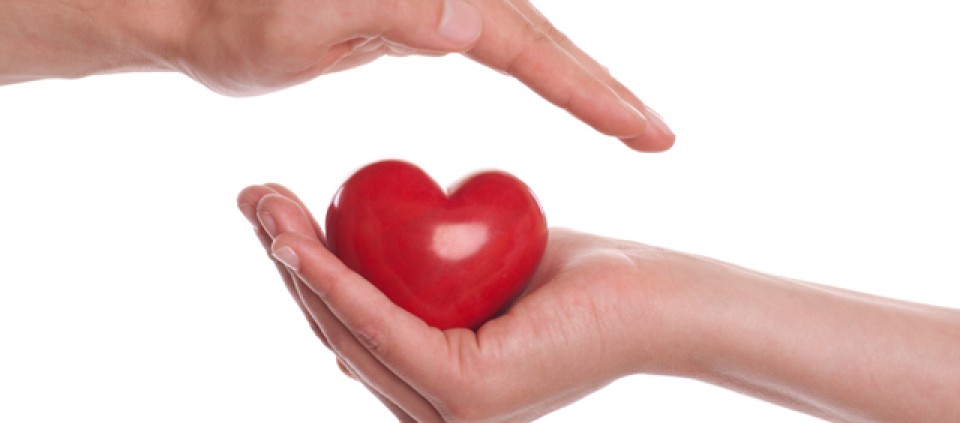Prevent Heart Disease with a Healthy Lifestyle

It’s the organ we associate with love. It’s the organ whose beats keep us alive. Let’s face it: the heart is pretty important. And yet more people die from heart disease in the United States than from anything else.
Proper nutrition and exercise are widely known to prevent and reverse the ubiquitous national disease, but social connectivity might play more of a role in protecting that mega-important organ than you think. “A connected life with supportive individuals can literally save your life,” says Lisa B. Nelson, MD, Director of Medical Education at Kripalu.
Whether you draw comfort from a loving family, a caring circle of friends, a religious group, or a supportive therapist, social connections reduce stress, which contributes to cardiovascular disease. In fact, studies have shown that people who participate in community or religious groups fare better after a heart attack than those who don’t. “It’s not just about taking your medication,” says Lisa. “When you spend time with someone you care about, you relax. Blood pressure, respiratory rate, and heart rate all go down.”
Lisa, a practicing family physician, counts not only her family but a strong network of friends as part of her healthy heart prescription. “We help each other out a lot,” she notes, “and we share recipes. They eat more kale because of us; we eat more squash because of them. It’s easy to see how friends can help perpetuate a healthy lifestyle.”
Speaking of food, Lisa is also a big believer in the benefits of a healthy diet to prevent and reverse heart disease. Here are a few of her favorite cardio-protective nutrition tips:
Optimize the omega-3 fatty acids. Foods high in omega-3 fatty acids like wild salmon and tuna, sardines, walnuts, and flaxseeds are anti-inflammatory and protect against heart disease.
Pump up the plant fats. Avocados, extra-virgin olive oil, and almond butter are high in monounsaturated fats, which lower “bad” cholesterol (LDL) and raise “good” cholesterol (HDL).
Go green. Kale, collard greens, and Swiss chard are high in magnesium and potassium, two nutrients that are key for cardiac health. A high intake of fruit and vegetables (particularly the green leafy variety) has been associated with a reduction in heart attack and stroke.
Spice it up. Garlic is a superfood, rich in micronutrients like selenium, manganese, and vitamins C and B6, which are anti-inflammatory and can be helpful in inhibiting clot formation.
And there’s an added benefit to a cardio-protective diet. “In your later years,” Lisa points out, “you won’t just protect against heart disease. You’ll avoid chronic conditions like diabetes, arthritis, possibly even depression.” One thing seems true, however—whether you’re nourishing yourself with healthy food, regular exercise, or people you care for, you’re protecting your heart—and protecting your life.
© Kripalu Center for Yoga & Health. All rights reserved. To request permission to reprint, please e-mail editor@kripalu.org.